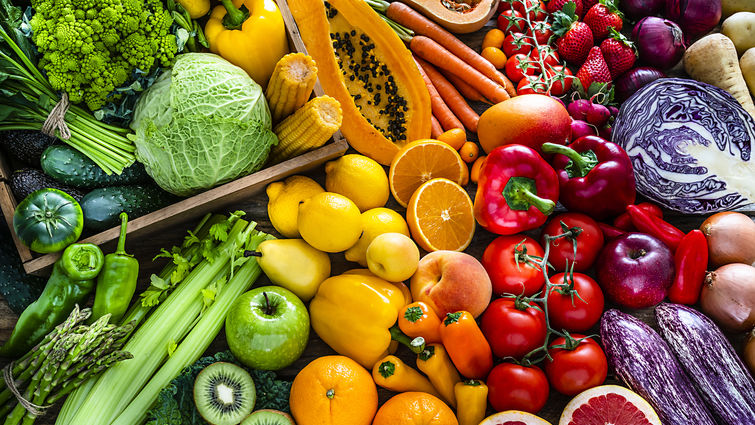
With prostate cancer being the second leading cause of cancer death in American men, prioritizing prostate health is crucial to men's well-being and longevity. One of the best ways to actively prevent cancer is to eat disease-fighting foods, according to Andrew Woodward, MS, RD, CSO, an oncology nutritionist at Loma Linda University Cancer Center.
He imparts top nutrition tips for men to lower their risk of developing prostate cancer — a vital initiative if they belong to a high-risk group for the cancer. This nutrition guide also serves current prostate cancer patients and survivors who want to avoid experiencing prostate cancer again.
Overall, Woodward recommends men stick to a primarily plant-based diet to provide as many phytochemicals as possible. These potent compounds help fight cancer and reduce the risk of its development. Below, Woodward outlines four categories of phytochemicals men can consume to minimize the risk of prostate cancer.
Lycopene — tomatoes, red fruits, veggies
Lycopene is a nutrient found in many red fruits and vegetables, including watermelons, radishes, red bell peppers, and tomatoes — especially cooked tomatoes. This anti-oxidant carries prostate health-specific benefits, as it can modulate some of the male hormones that can contribute to prostate cancer, Woodward says.
Some studies have suggested when excess amounts of testosterone are metabolized, or broken down and eliminated in the body, the resulting metabolites can lead to prostate growth — thus heightening the risk of prostate cancer, he says. Lycopene curbs this risk by interacting with the metabolized testosterone.
Epigallocatechin gallate— green tea
Epigallocatechin gallate (EGCG) is an anti-angiogenesis found in green tea and white tea. Angiogenesis is the process by which cancer cells produce blood vessels that tap into the blood supply to collect nutrients needed to help the tumor grow. EGCG limits angiogenesis by blocking the tumor's ability to make blood vessels, thus lessening its growth potential.
“In a sense, EGCG is a weapon to help starve the cancer,” Woodward says.
Green and white tea are the least processed variety of teas from the Camellia Sinensis plant and contain a high amount of ECGC. Woodward says studies have shown that men who consume ECGC in elevated amounts (3-4 cups per day) lower risk of prostate cancer. “I recommend green tea to almost all my cancer patients,” he says.
Isoflavones — Organic soy foods
Isoflavones are phytochemicals capable of binding with estrogen receptor sites in the body without unlocking the metabolism process for or cancer growth. When isoflavones bind into an estrogen receptor site, they can block estrogen from occupying the same receptor site. In this way, it is beneficial in discouraging breast or prostate cancer growth.
Though soy elicited controversy years ago with uncertainty around its safety, Woodward says multiple studies published since 2009 have demonstrated not only that it is safe but that it is cancer preventive. Traditional soy foods include tofu, tempeh, edamame, miso, and soymilk.
Glucosinolates — Cruciferous veggies
Broccoli, brussels sprouts, cabbage, cauliflower, and kale are cruciferous vegetables rich in phytochemicals known as glucosinolates. Upon preparation and consumption, the glucosinolates in cruciferous vegetables break down into biologically active compounds with anti-cancer effects:
- indole-3 carbinol: reduces hormone-sensitive cancers
- sulforaphane: deactivates carcinogens
Woodward recommends eating cruciferous vegetables on most days of the week. Prepare them in a variety of methods beyond steaming. Try eating them raw in salads or sandwiches, roasting them in the oven, or even adding cauliflower to smoothies or as a pizza crust.
To learn more about the Cancer Center's nutritional resources, visit this webpage, and to learn more about prostate cancer-specific services , visit lluh.org/cancer-center/cancer-programs/prostate-cancer-care.
